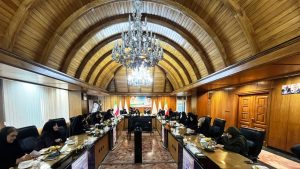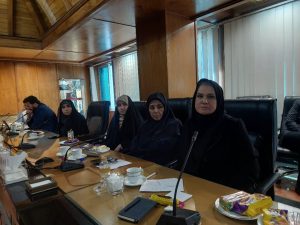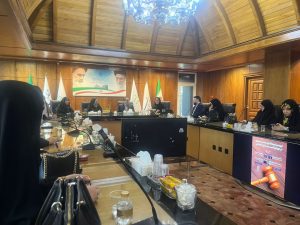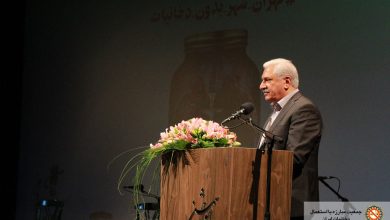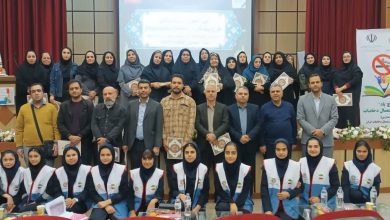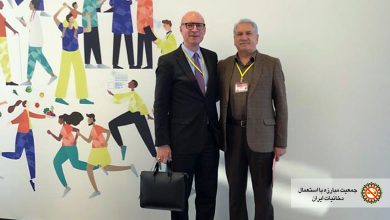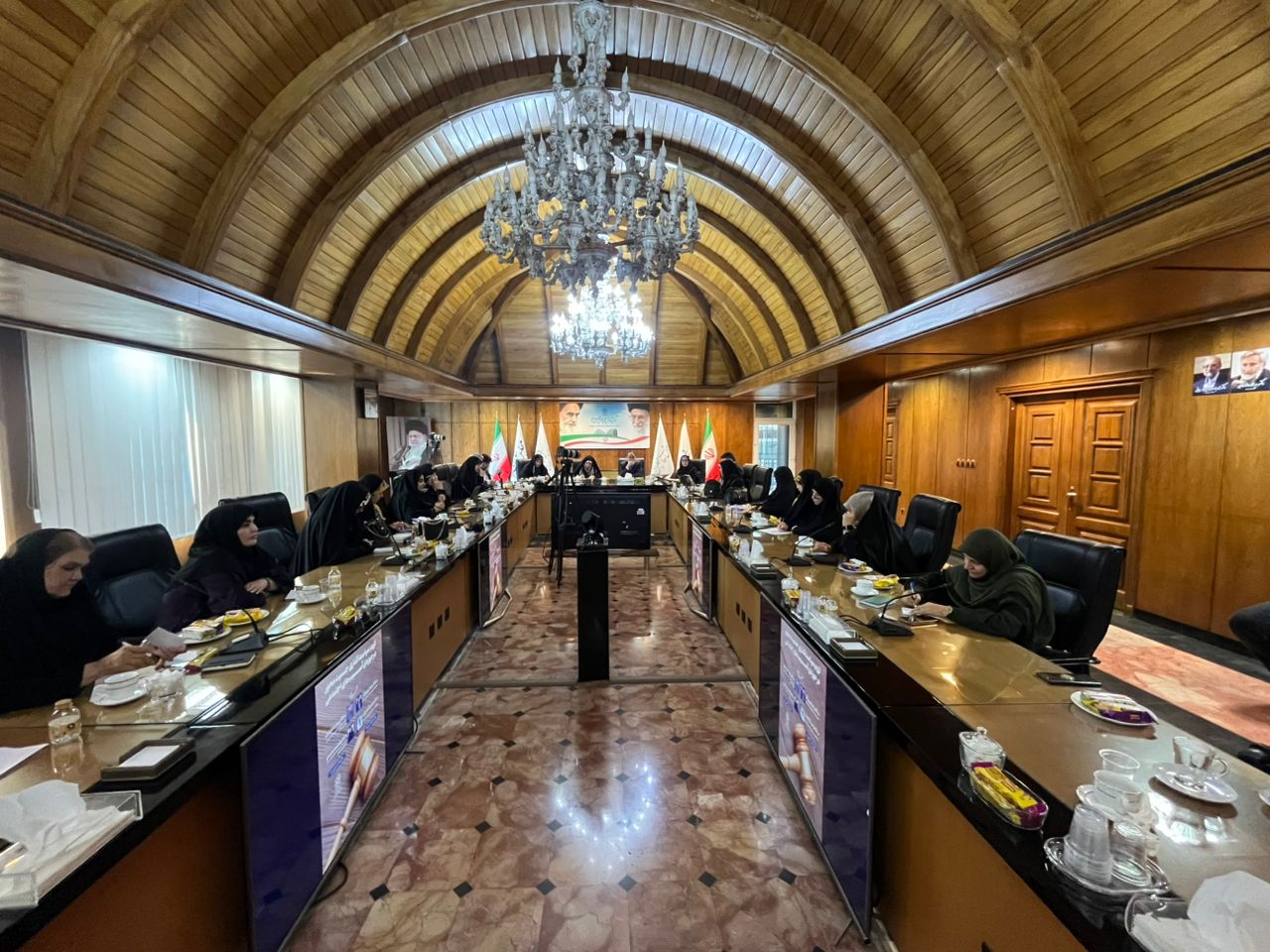
On Saturday, October 4, 2025, a specialized meeting titled “The Necessity of Gender-Based Policy-Making in the Field of Social Harms” was convened at the Research Center of the Islamic Consultative Assembly (Majlis). The session was attended by Babak Negahdari, Head of the Research Center of Parliament; Dr. Zahra Behrooz Azar, Vice President for Women and Family Affairs; Zahra Khodadadi, Head of the Parliamentary Women’s Faction; and a number of scholars and experts in women’s and family studies, including Zahra Sadr, Head of the Women’s Division of the Iranian Anti-Tobacco Association; Dr. Afsaneh Tousli, Associate Professor at Alzahra University; and Fatemeh Azim-Beig, Researcher at the Tobacco Control Research Center.
Opening the session, Negahdari emphasized the importance of women’s role in both family and society, referring to the Supreme Leader’s concept of the “third model of woman,” which combines motherhood and social participation. He highlighted that while governance is complex, women’s managerial capabilities, owing to their precision and attention to detail, make them particularly effective in certain domains that must be identified and strengthened.
Dr. Behrooz Azar underscored that Iran is among the few nations in which women and family issues are explicitly addressed in the Constitution. She referenced Articles 10, 20, and 21, which emphasize the protection and empowerment of women, support for families, and gender equality in social rights and opportunities.
Zahra Khodadadi, Head of the Women and Family Faction in Parliament, stressed the necessity of gender-oriented policymaking in social, scientific, and religious contexts, asserting that these principles align with Islamic teachings emphasizing women’s dignity and respect, rather than feminist ideologies.
Fatemeh Mohammadi, Head of the Social Harms Department of the Research Center, criticized the lack of attention to gender considerations in the formulation of social policies. She noted that existing social welfare and rehabilitation services fail to empower women and instead focus only on temporary sheltering, leading to recurrent cycles of vulnerability among affected individuals. She highlighted the need for gender-responsive budgeting and program design, noting the absence of gender differentiation in funding allocations and social rehabilitation programs.
Farahnaz Khoshroshahi, Advisor on Women and Family Affairs in the Judiciary, emphasized that while legislative frameworks related to women are extensive—such as the Family Support and Population Youth Law—the main deficiency lies in implementation and enforcement.
Dr. Mina Abadian and Dr. Afsaneh Tousli, both psychologists and faculty members, discussed the multidimensional nature of social harms, particularly addiction and domestic violence, emphasizing that addiction is “the mother of all social harms.” They noted that women’s vulnerability to such harms disrupts family stability and societal well-being. Dr. Tousli further emphasized that tobacco use, though often perceived as a less severe harm, has become normalized among young women, symbolizing independence and modernity—an issue that requires urgent policy attention.
Zahra Sadr, Head of the Women’s Division of the Iranian Anti-Tobacco Association, addressed the increasing prevalence of tobacco use among adolescents and women, linking it to broader social and demographic challenges. She warned that tobacco consumption contributes to both current and intergenerational health risks and indirectly to the national fertility crisis, as it increases the risk of infertility among both women and men.
She presented a set of evidence-based policy recommendations for reducing tobacco-related harms—recognized as the “gateway to addiction”—as follows:
-
Analysis of Social and Psychological Roots of Tobacco Use
-
Addressing underlying social pressures, family stress, and media-driven normalization of tobacco consumption among women.
-
Promoting healthy alternatives such as sports, leisure management, and well-being programs for girls in schools and universities.
-
Regulating media portrayals that normalize smoking among women, including domestic productions and social media influencers.
-
-
Critique of Existing Policies and Legal Gaps
-
Lack of gender-based preventive strategies in current tobacco control policies.
-
Weak implementation of the Comprehensive National Tobacco Control Law (2006), co-drafted by Dr. Mohammad Reza Masjedi, Secretary-General of the Anti-Tobacco Association.
-
-
Proposed Preventive and Supportive Policies
-
Developing gender-sensitive educational programs in schools and universities.
-
Incorporating information on tobacco’s reproductive and maternal health risks in premarital counseling and obstetric clinics through digital and visual educational tools.
-
Launching cultural campaigns with influential female figures and artists to promote tobacco-free lifestyles.
-
-
Strengthening Women’s Role in Policy-Making and Research
-
Encouraging women’s active participation in drafting social health legislation and organizing life skills and parenting workshops for working women and parents.
-
Supporting gender-based research on women and tobacco use, led by the Iranian Anti-Tobacco Association, which holds two official licenses from the Ministries of Health and Science, and has published 35 scientific papers, including 10 focused on women and tobacco.
-
Promoting peer-based initiatives by engaging former female smokers as role models in cessation programs.
-
This session underscored the critical need for gender-responsive policymaking and multi-sectoral collaboration to address social harms effectively, particularly those linked to tobacco use, addiction, and women’s empowerment in Iran.
